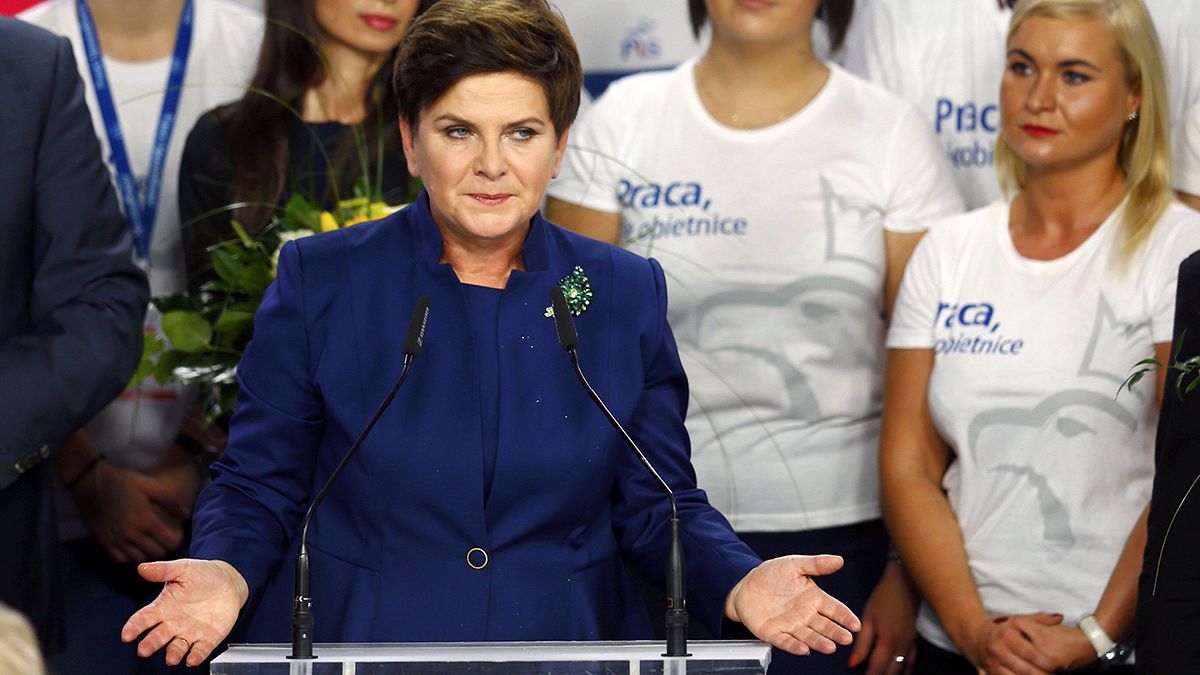The Law and Justice (PiS) party – both conservative and Eurosceptic – have won Poland’s parliamentary elections. The party’s leader Jaroslaw
The Law and Justice (PiS) party – both conservative and Eurosceptic – have won Poland’s parliamentary elections. The party’s leader Jaroslaw Kaczynski and the future prime minister, Beata Szydlo, have completed the country’s swing to the right of centre with their victory coming just months after Law and Justice Party (PiS) candidate Andrzej Duda was voted in as Poland’s sixth president.
The country is expected to have, for the first time since democracy was restored in 1989, a one-party government. The conservative group have appealed, in particular, to voters in poorer rural areas who feel left out by Poland’s robust economic growth with promises of lower taxes, changes to the retirement age and an increase in benefits for families. It is a heavy supporter of the Catholic Church with a ban on abortion and in-vitro fertilisation among its policies.
Internationally, the party is distrustful of the EU and is against joining the euro zone any time soon. It has also believes a strong NATO is essential in order to deal with the perceived threat from Moscow.
The refugee crisis on the continent has played an important role in the election campaign. Warsaw has agreed to accept around 7,000 people, however party leader Kaczynski has been a long-time supporter of Hungarian Prime Minister Viktor Orban with his comments that Muslims are a threaten to Poland’s Catholic way of life coming under fire.
“We need to emphasise the importance of Poland as a country that defends the interests of its citizens,” said future prime-minister Beata Szydlo.
Defending the country’s interests may reopen a turbulent period with its European allies as was the case with Germany between 2005 and 2007 when the Kaczynski twins were in power together and demonstrated their support for the US.
Despite the party’s Eurosceptic stance, the vast majority of Poles were in favour of European Union membership in a recent poll.
Euronews correspondent Nelson Perreira caught up with Dominika Cosic, a Polish journalist based in Brussels in order to better understand the election win for the Law and Justice Party.
Perreira: “Could you explain the victory for the party?”
Dominika Cosic: “First, we shouldn’t be scared. We have to give the party a chance. They won for more than one reason. Polish voters were tired of the Civic Platform government – even Donald Tusk admitted during a meeting with Polish journalists that it was time for a change. The result can also be explained by the ballots from a new generation of voters. Ten-years-ago it was believed that Law and Justice voters were elderly people who didn’t have a university education and were from rural areas. They weren’t young people or graduates from the major cities. Internet users voted for Civic Platform. Now we’re seeing a change – the Law and Justice Party had significant support from younger people with a good level of education.”
euronews: “Should we expect to see big changes in Poland’s foreign policy? For example, in relation to the refugee crisis, Russia and Ukraine.”
Dominika Cosic: “Starting with Ukraine, I don’t think Poland is going to change its policy too much. Warsaw may demonstrate even more support for a democratic and sovereign Ukraine. With regard to Russia, relations between Moscow and Warsaw had improved but they have deteriorated over the past year and a half due to the war in Ukraine and the annexation of Crimea. The new government will have to face these issues. Russia is a difficult partner. Some politicians in Europe are going to be wondering how relations with Germany will fare. In recent weeks, Berlin has committed a grave error with the North Stream 2 project, which threatens Poland’s energy security. The new government will have to deal with this project, which has the support of Chancellor Angela Merkel. And the refugee crisis -the new government won’t probably want to renegotiate with Brussels over the 7,000 refugees the country has agreed to take in. The only problem may be the decision to accomodate greater numbers of people. The government will instead focus on the necessity to strengthen Frontex and the external borders of the EU.”
euronews: “What are the governments’ major challenges?”
Dominika Cosic: “The Law and Justice Party has made many promises such as lowering the retirement age and introducing a social welfare allowance for each child in an attempt to reverse the current demographic trends in Poland.”


